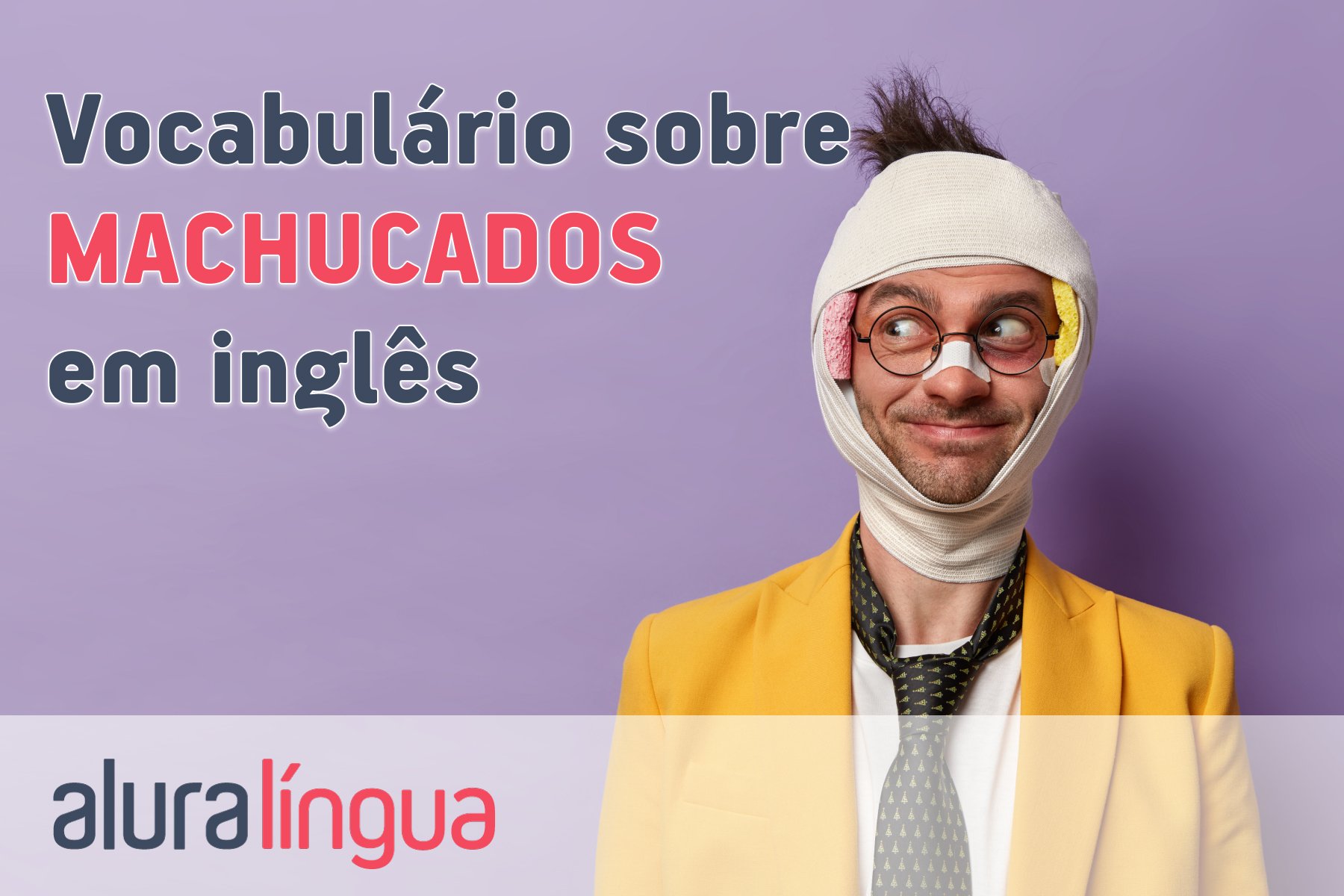
Hello, there! Você já aprendeu como dizer os diferentes tipos de dores em inglês (clique aqui para ler o nosso artigo), e agora você vai ampliar o seu vocabulário em inglês e aprender a falar sobre os outros tipos de injuries (machucados).
Let's get it started!
Vocabulário sobre machucados em inglês
Blister: bolha
- I wore new shoes and got a blister on my heel. (Eu usei sapatos novos e ganhei uma bolha no meu calcanhar.)
- She burned her hand and now has blisters on her fingers. (Ela queimou a mão dela e agora tem bolhas nos dedos.)
Bruise: hematoma
- She bumped into the table and now she has a bruise on her arm. (Ela bateu na mesa e agora tem um hematoma no braço.)
- He slipped on the ice and ended up with bruises all over his body. (Ele escorregou no gelo e acabou com hematomas por todo o corpo.)
Burn: queimadura
- She suffered a severe burn on her hand while cooking. (Ela sofreu uma queimadura grave na mão enquanto cozinhava.)
- The firefighter treated the burn victim with immediate care. (O bombeiro tratou a vítima da queimadura com cuidado imediato.)
Fracture: fratura
- He had a bad fall and ended up with multiple fractures in his arm. (Ele teve uma queda grave e acabou com múltiplas fraturas no braço.)
- She needed surgery to repair the fracture in her leg. (Ela precisou de cirurgia para reparar a fratura na perna.)
Scar: cicatriz
- The deep cut healed, but it left a noticeable scar on his arm. (O corte profundo cicatrizou, mas deixou uma cicatriz visível no braço dele.)
- She has a scar on her face from a childhood accident. (Ela tem uma cicatriz no rosto de um acidente na infância.)
Scratch: arranhão
- The cat's scratch on his arm left a small, red mark. (O arranhão do gato no braço dele deixou uma pequena marca vermelha.)
- The tree branch scratched my leg as I walked by. (O galho da árvore arranhou minha perna enquanto eu passava.)
Sprain: torção
- I twisted my knee and ended up with a sprain during the soccer match. (Eu torci meu joelho e acabei com uma torção durante o jogo de futebol.)
- He slipped on the wet floor and sprained his wrist. (Ele escorregou no chão molhado e torceu o pulso.)
Stitches: pontos, suturas
- After the surgery, he needed stitches to close the incision. (Após a cirurgia, ele precisou de suturas para fechar a incisão.)
- The doctor had to give her stitches to close the deep cut. (O médico teve que dar pontos para fechar o corte profundo.)
Swelling: inchaço
- The mosquito bite caused itching and swelling on his arm. (A picada de mosquito causou coceira e inchaço no braço dele.)
- I accidentally hit my thumb with a hammer, and it immediately started swelling. (Eu acidentalmente acertei meu polegar com um martelo e ele começou a inchar imediatamente.)
Wound: ferida
- She cleaned the wound with antiseptic to prevent infection. (Ela limpou a ferida com antisséptico para prevenir infecção.)
- He applied a bandage to the small wound on his finger. (Ele aplicou uma bandagem na pequena ferida no dedo dele.)
How many of these injuries have you ever had? (Quantos desses machucados você já teve?)
Continue estudando com a gente no nosso artigo "Qual é a diferença entre STATIONARY e STATIONERY?". See you!